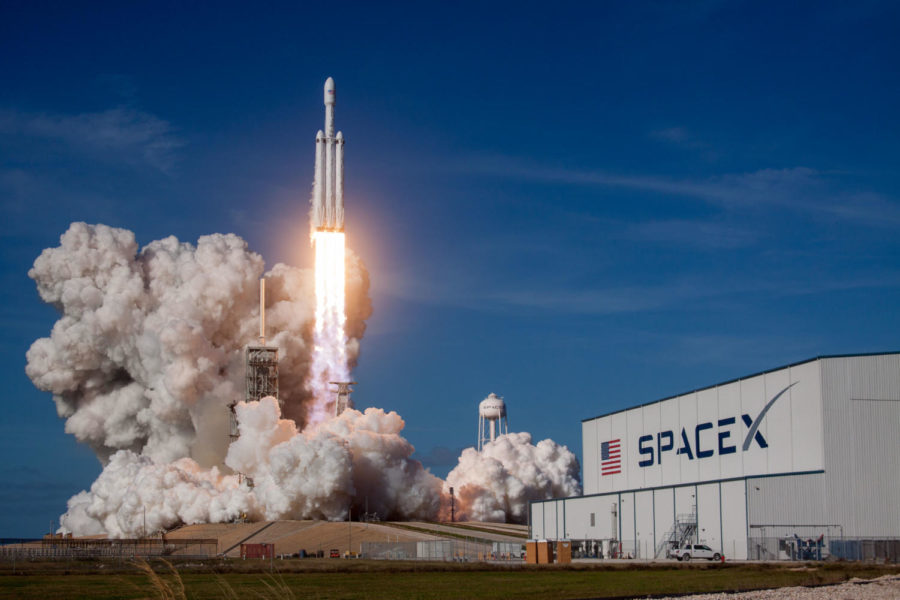The Space Race, Reinvented
Photo courtesy of SpaceX
March 4, 2022
Over seven decades ago, one of the bloodiest conflicts in human history closed in a fiery and immensely devastating bang. With the detonation of the atom bombs in Japan, a new period of human history marked by the ever-present fear of nuclear warfare dawned on the ruination left by World War II. In the following decades, the then Soviet Union and the United States, two of the world’s greatest nuclear superpowers, engaged in drawn-out displays of influence, also known as the Cold War. The Space Race was one such competition, a product of a breathless struggle to the stars. Although almost exclusively a race between the U.S.S.R. and the U.S.A., the Space Race would toll on the bell of scientific progress as a whole, with the echoes still ringing into the present. Within a century, mankind had progressed from being unable to fly to planting flags on the moon and sending satellites into the depths of the cosmos.
Today, the landscape of space exploration is wildly different. Seemingly monthly, rockets take-off from launch sites belonging to companies like SpaceX and Blue Origin. It often feels like NASA’s old “thunder” has been stolen by private corporations and billionaires with a bit of extra money to splurge. This new Space Race has become a plaything for the incredibly wealthy to toy around with, and the passion projects of individuals have come to infringe on what was once NASA’s dominion. However, not everyone agrees with this sentiment. Sophomore Tyler Olmstead comments, “I like that [the Space Race] has become more of a private thing than a government one, so this way it can’t get caught up in political gridlock.”
One cannot deny that these private corporations have positioned themselves at the forefront of human knowledge and contributed to many of the innovations of recent years. However, these same corporations have allowed untrained individuals to hitch rides on rockets for high prices, commodifying the very act of space exploration. All this occurs while the planet toils through a climate crisis, a highly unpredictable virus, and all the other ills that have plagued humanity for centuries but have never been solved: world hunger, poverty, etc. All this conflict boils down to one question: how much do we value space exploration as a society and species? As of now, only one thing is clear: this is nothing like the race to space of the 20th century.






